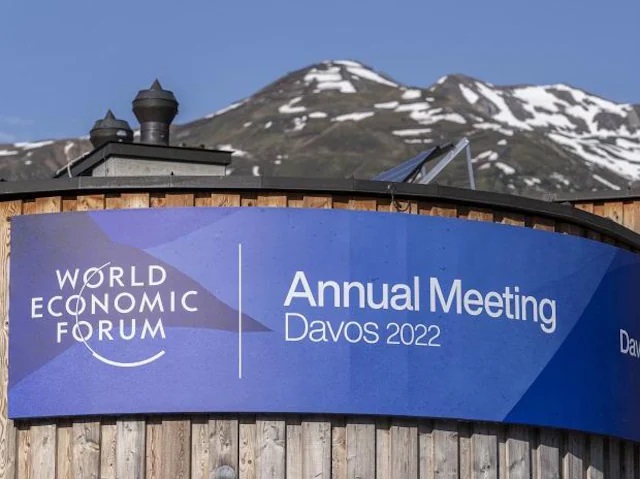As the annual gathering of the global elite began in Davos yesterday, the topic on the minds of the world’s business executives was how to alleviate the cost-of-living crisis.
The executives, politicians, and dignitaries gathered in the Swiss ski town may not be feeling the ‘cost-of-living’ squeeze yet – helicopters were still buzzing into the Swiss resort as the World Economic Forum’s (WEF) summit got underway.
However, they were keen to confront the problem of growing costs, which are putting their companies and residents at risk.
The World Economic Forum is conducting its annual conference at a painful time.
Not only is the conference four months later than normal – with finely dressed participants wiping their brows in the spring heat rather than pounding their feet in the winter snow – but there are a number of forces conspiring to push the planet into recession.
Red-hot inflation, an energy crisis, and increasing protectionism, according to Kristalina Georgieva, managing director of the International Monetary Fund (IMF), are endangering the global economy. Georgieva said the ‘horizon has darkened’ even more after the IMF reduced growth predictions for more than 100 nations, including the UK, in April. The consequences of the conflict in Ukraine are growing further and faster,’ she said. ‘We are looking at 2022 as a tough year.’
Jane Fraser, the CEO of Citigroup, warned about inflation in Europe as early as last year. When asked whether she was almost convinced that Europe will experience a recession, she simply said, “Yes”. She then continued, “‘Europe is right in the middle of the storms from supply chains, from the energy crisis, and obviously just the proximity to some of the atrocities that are occurring in Ukraine.’
The European Central Bank (ECB) began to indicate the magnitude of its own anxiety back in Frankfurt. ECB President Christine Lagarde said interest rates in the European Union will be hiked in July from their present level of minus 0.5% in a blog post that analyst’s called “remarkably explicit.” Unlike the UK and the US, the ECB has so far refrained from raising interest rates, fearful of delaying the recovery from Covid.
Higher interest rates may theoretically temper increasing prices by encouraging consumers and companies to save rather than spend, but they also stifle economic growth. However, sky-high inflation, or the increase in the cost of living, has prompted governments to act. ‘This would enable us a rate lift-off at our meeting in July, in accordance with our forward projection,’ she continued, explaining that the ECB will begin stopping its vast money-printing programme very early in the third quarter.’
The minds of the corporate world pushed global leaders to maintain collaboration over multiple panel discussions at the WEF. The forum’s managing director, Saadia Zahidi, warned that the planet is on the verge of a destructive cycle. She added: ‘Leaders face difficult choices and trade-offs domestically when it comes to debt, inflation, and investment. Yet business and government leaders must also recognise the absolute necessity of global cooperation to prevent economic misery and hunger for millions around the world.’
Europe can only get worse from here
On May 18, the inflation rate in the United Kingdom was 9%. How temporary is this? If Europe maintains its economic war with Russia by putting pressure on commodities, the answer is – as long as Europe and Russia continue to penalise each other.
A long history of sanctions shows they don’t seem to change behaviour or oust leaders (e.g., the many years of tough sanctions on Iran, North Korea, and Venezuela). But they do impose severe costs on nations and their neighbours leading to rising poverty, falling incomes, and mistrust of our governing leaders which all have a lasting global impact on the future of every citizen and their families. So, let’s not forget about the Davos (WEF) elites in Switzerland enjoying their champagne and canapés as they worry (plan) about Europe.
online sources: thisismoney.com, yahoo.com, weforum.com All opinions and views expressed or suggested by the Digital Zeitgeist are not necessarily the same opinions and views held by or suggested by GPM-Invest plus any and all partners, affiliates, parties, or third parties of GPM-Invest. Any type of media distributed by GPM-Invest IS NOT financial advice. Please seek advice from a professional financial advisor.

